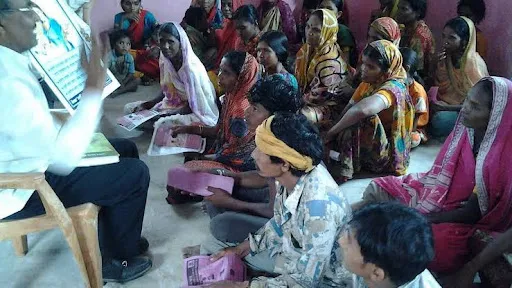If asked to compare a community of forest produce gathering people about 7000 years ago with a most modernized group of people in New York City today, most people would say that of course, the later situation reflects much greater development and progress of humanity in terms of easily accessing so many comforts and luxuries, not just needs.
However if we start exploring questions like which life-patterns reflect greater environment protection and sustainability, more justice and equality, more peace, contentment and harmony with other people as well as other forms of life, then in all likelihood the thousands of years old community would reflect a more ‘advanced’ state.
The past five to six hundred years are often regarded as the years of greatest progress. Yet cruelty, plunder, injustice, massacres and genocides (sometimes to the extent of nearly 90 per cent of the people of vast regions being killed) have also been seen in some of their worst forms during these centuries.
The last century has been called the century of the greatest progress but in fact this is the century in which the basic life-nurturing conditions of the planet have been ravaged the most, largely due to the folly of the richest 10 per cent of people, endangering not just the entire humanity but also the thousands and thousands of other forms of life.
Hence history must never be seen as a history of continuing human progress. Instead history must strive to understand the conditions relating to justice, equality, protection of environment and biodiversity, concern for all forms of life and compassion, peace and harmony in various places and times and then to understand progress or regression in these terms.
Similarly other social sciences and humanities must change to reflect such an improved and more comprehensive understanding of progress/regression and wellness/illness of various societies. This is certainly true of sociology, political science and perhaps most of all of Economics.
Unfortunately distortions in the study and understanding of Economics have often led to many economists, including some of the most reputed ones, contributing to injustice, inequality and ecological ruin instead of contributing to justice, equality and protection of environment.
Social sciences and social scientists must increasingly be more inward looking to honestly evaluate their role and contribution in times which are perhaps the most troubling in the history of humanity on earth, times when entirely human-made factors have brought the planet to a stage where its basic life-nurturing conditions are very badly threatened.
Why is it that many social scientists have not been able to contribute in more meaningful and effective ways on the side of justice and equality, environment protection and peace? Why several of them are increasingly seen to be on the side of problems rather than solutions? Why an even higher number has chosen to be wrapped up in advancing their own comforts instead of taking a more active role in challenging injustices and helping to create a better, safer world?
There is much need for honest introspection by the community of social scientists regarding their role. Is their role to be seen only or mainly in careerist terms (which would be a very narrow understanding for a profession that should be seen in terms of a very noble and important role, all the more so in these difficult times)? What needs to be done to increase the possibilities of more and more social scientists being able to contribute more meaningfully to creating a better and safer world?
The other aspect relates to reframing, restructuring or perhaps even re-defining various social sciences in terms of the needs and requirements of creating a better, more just, sustainable and safer world. Both aspects of this introspection are of course related to each other, both are equally important. Initiatives relating to such introspection are likely to result in various useful suggestions, including some that can be taken up immediately and some that need longer-term processes and much wider efforts. If these can be shared and together lead to a more broad-based effort, cutting across narrow boundaries, then a more specific agenda of meaningful changes can emerge within a year or two.
What is true beyond any doubt is that in order to check the existential crisis before it is too late, and do this within a framework of justice, peace and democracy, the world deeds vary basic changes in the near future. Social scientists and social sciences must change in order to be able to contribute adequately to this. It is within this wider perspective that the suggestions made here should be seen.
---
The writer is Honorary Convener, Campaign to Save Earth Now. His recent books include Protecting Earth for Children, Planet in Peril, Earth without Borders, Man over Machine and A Day in 2071


Comments